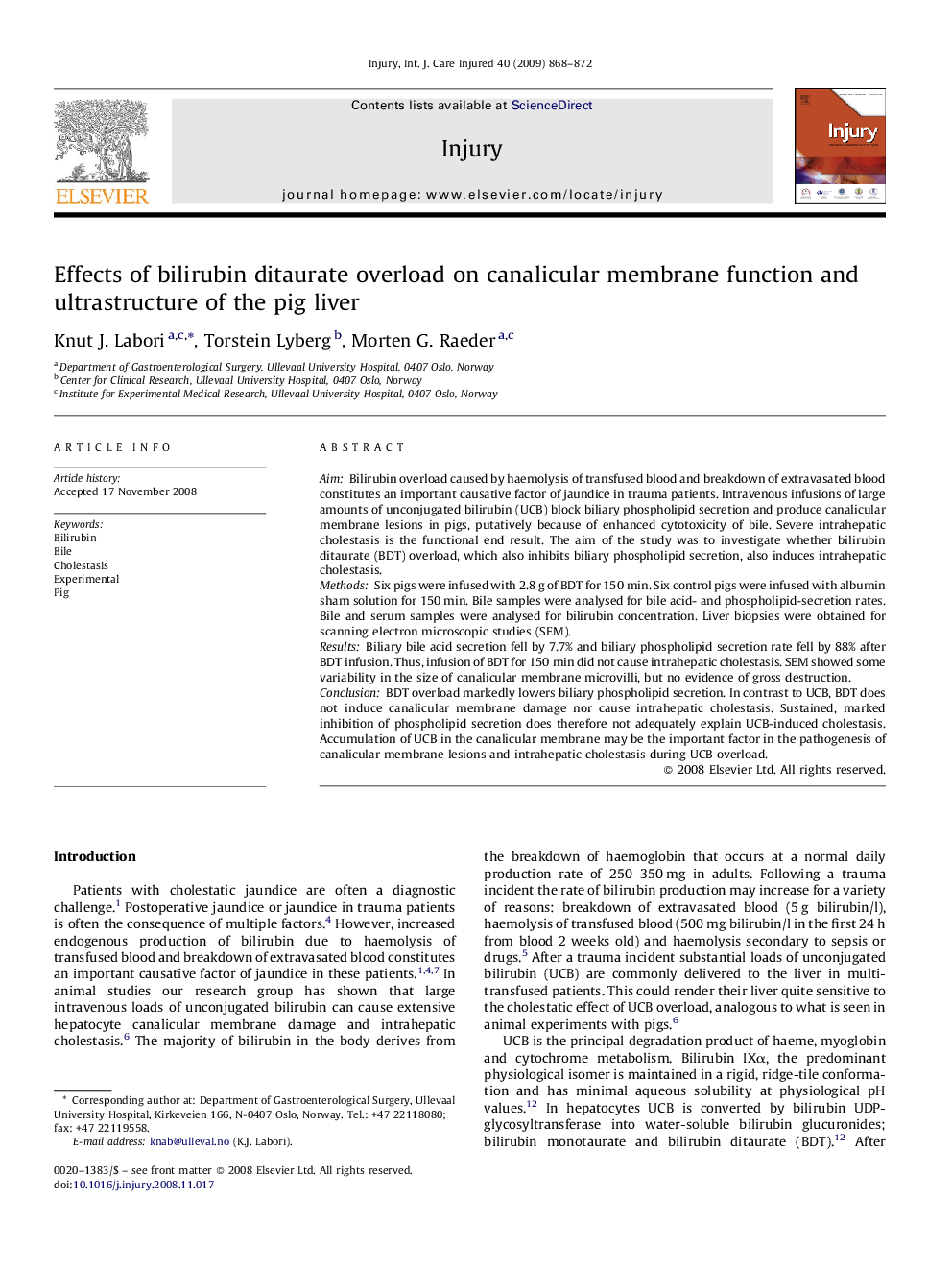| Article ID | Journal | Published Year | Pages | File Type |
|---|---|---|---|---|
| 3241322 | Injury | 2009 | 5 Pages |
AimBilirubin overload caused by haemolysis of transfused blood and breakdown of extravasated blood constitutes an important causative factor of jaundice in trauma patients. Intravenous infusions of large amounts of unconjugated bilirubin (UCB) block biliary phospholipid secretion and produce canalicular membrane lesions in pigs, putatively because of enhanced cytotoxicity of bile. Severe intrahepatic cholestasis is the functional end result. The aim of the study was to investigate whether bilirubin ditaurate (BDT) overload, which also inhibits biliary phospholipid secretion, also induces intrahepatic cholestasis.MethodsSix pigs were infused with 2.8 g of BDT for 150 min. Six control pigs were infused with albumin sham solution for 150 min. Bile samples were analysed for bile acid- and phospholipid-secretion rates. Bile and serum samples were analysed for bilirubin concentration. Liver biopsies were obtained for scanning electron microscopic studies (SEM).ResultsBiliary bile acid secretion fell by 7.7% and biliary phospholipid secretion rate fell by 88% after BDT infusion. Thus, infusion of BDT for 150 min did not cause intrahepatic cholestasis. SEM showed some variability in the size of canalicular membrane microvilli, but no evidence of gross destruction.ConclusionBDT overload markedly lowers biliary phospholipid secretion. In contrast to UCB, BDT does not induce canalicular membrane damage nor cause intrahepatic cholestasis. Sustained, marked inhibition of phospholipid secretion does therefore not adequately explain UCB-induced cholestasis. Accumulation of UCB in the canalicular membrane may be the important factor in the pathogenesis of canalicular membrane lesions and intrahepatic cholestasis during UCB overload.
